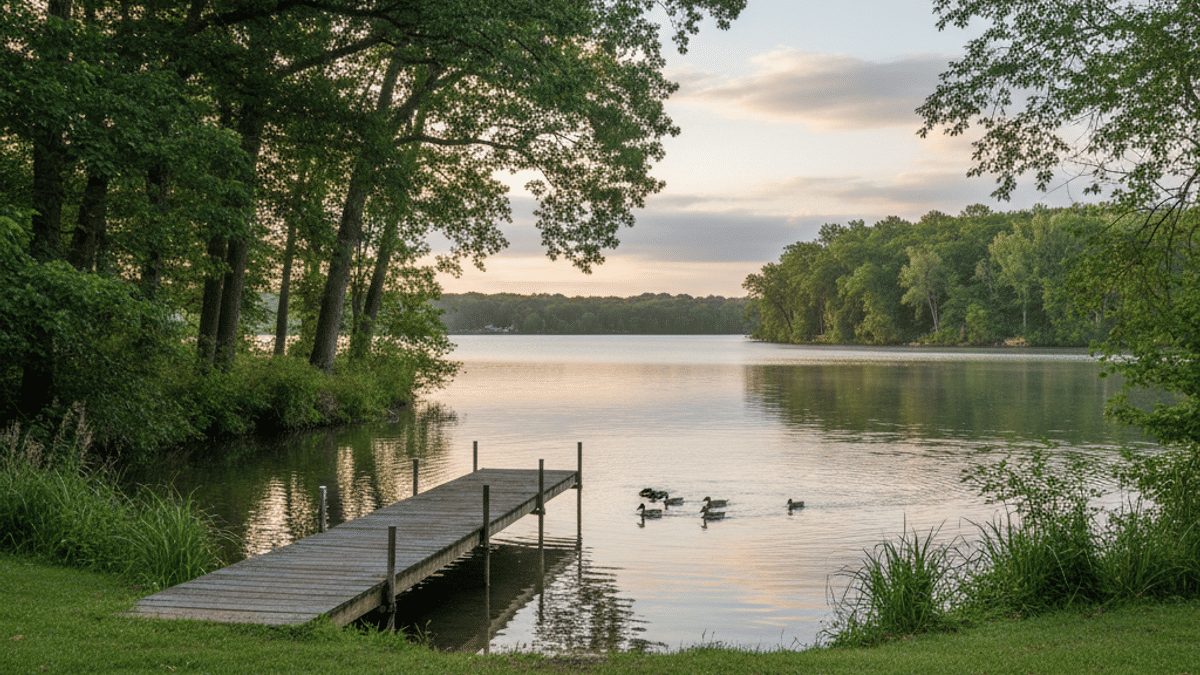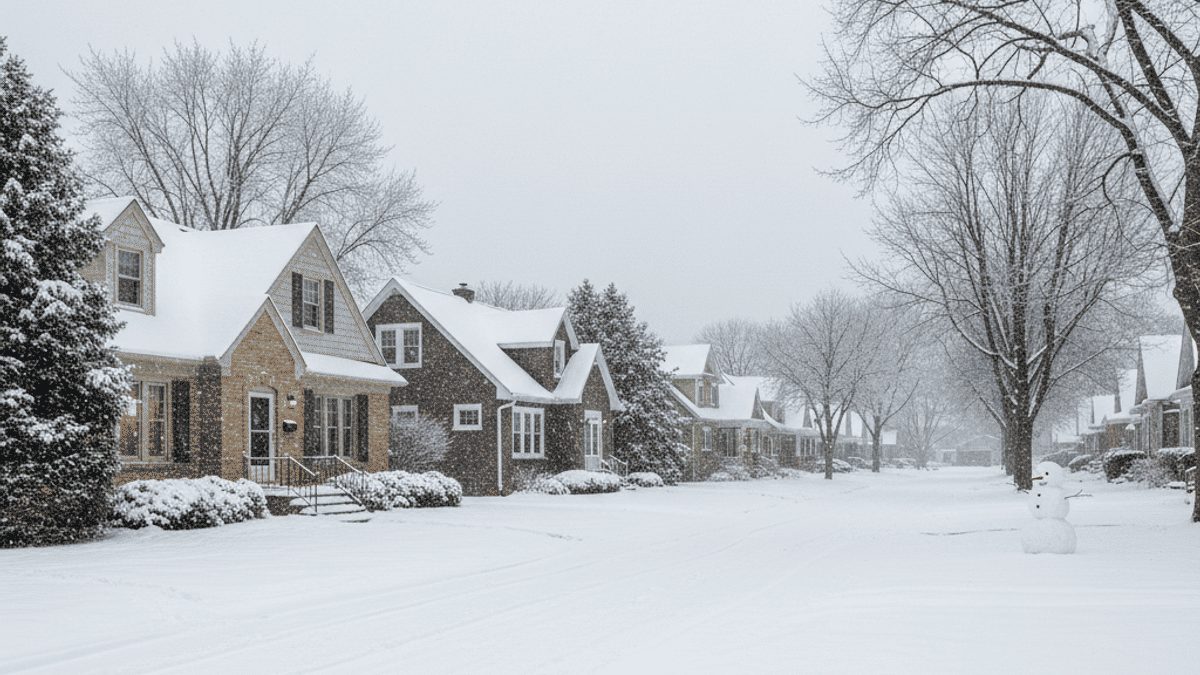How Long to Own Before Selling Verona
You bought the place in Verona, hung your first set of string lights on the back patio, then blinked and three years zipped by. Now Zillow alerts keep pinging your phone with eye-popping sale prices and you wonder, is it too early to cash out or am I already late to the party?
Take a breath. Selling at the right moment is part math, part gut feeling, and part very local insight. Verona, WI is not Manhattan or Phoenix or Duluth. It moves to its own beat, one tied to biotech payrolls, Epic Systems’ hiring cycles, and a stream of new coffee shops along Main Street.
Below you will find a no-nonsense look at how long you should hold a Verona home before planting that For-Sale sign out front. Expect clear numbers, a few real-life wrinkles, and brass-tacks strategies you can use tomorrow morning.
The Real Estate Timing in Verona, WI
Conventional wisdom once tossed around the five-year rule. Stay at least half a decade, recoup your closing costs, sell, and pocket a tidy gain. That blanket guideline worked when loan fees were lower, appreciation was more predictable, and homeowners stayed put longer out of sheer habit.
Fast-forward to 2024 and Verona’s property scene looks livelier yet slightly more expensive to enter and exit. You pay a bit more for title work, transfer fees, and fresh paint. That cost stack often means you need closer to seven years simply to break even if prices stay flat.
A quick back-of-napkin example helps. Purchase price 425 000 dollars. Down payment 10 percent. Add loan origination, inspections, and the movers. Day-one equity sits near 35 000 dollars but transaction costs swallow almost half. To refill that equity bucket you rely on appreciation, principal pay-down, and maybe a deck addition. With Verona’s average annual appreciation running 3 to 4 percent you inch into true profit around year seven, maybe year eight.
Market forecasters also see mortgage rates easing but not cliff-diving. If you buy in 2025-ish you may need ten years to reach the same profit line simply because you financed at a higher rate to begin with. Long story short, Verona is generous over time yet picky in the short term. Keep that in your back pocket as we drill deeper.
The Money Questions You Cannot Dodge
Selling before you are financially ready is a bit like running a marathon in flip-flops. You could do it but your feet will scream. Here are the dollars-and-cents checkpoints that matter in Verona right now:
- Equity position
Start by logging into your mortgage portal, pull the current payoff, then subtract that from a realistic sale price. If that gap is under 10 percent of the expected sale number, hold off. Closing fees alone can eat three to six percent. - Rate differential
Your existing mortgage might carry 3-point-two percent, while a new purchase would cost over six. Even if you profit on the sale, you re-buy at a steeper monthly outlay unless you downsize sharply. Plug the numbers into a basic amortization tool before you assume the grass is greener. - Capital gains
Primary residence profits under 250 000 dollars if single or 500 000 dollars if married can skip federal capital-gains tax, but only if you owned and occupied the place for two of the past five years. Selling at month 20 means Uncle Sam gets a cut. - Maintenance drag
Roof due in four years. Furnace clinging to life. If major systems are lining up to empty your savings, unloading earlier might still pencil out provided buyers remain hungry. Verona’s tight inventory has covered many cosmetic sins, yet big ticket fixes still lower offers.
So, how many years should you own before selling based purely on numbers? In today’s Verona math, seven to ten usually feels right, though a surprise pop in appreciation can shave that to five. Always verify your personal break-even first.
Market Numbers and Local Vibes
National headlines often lump Madison Metro together, but Verona carves its own little storyline. Let us zoom in:
- Days on market
Homes under 600 000 dollars sit for about 21 days, barely three weekends. Listings above 800 000 stretch closer to 45. Swiftness means sellers pay fewer months of double housing costs, a sneaky yet real savings. - Year-over-year price bump
2022 to 2023 delivered 6 percent. 2023 to 2024 cooled to 3 percent. Still growth, just calmer. - New construction pipeline
Roughly 140 single-family starts are scheduled through late 2025 along County Hwy M. Fresh supply can soften resale momentum for comparable layouts, so older subdivisions may need sharper staging or price discipline three years down the line. - Major employers
Epic Systems continues a steady hiring drumbeat, averaging 600 to 900 new positions annually. Tech-weighted salaries cushion the market even when regional chatter turns gloomy.
Short takeaway. Verona is stable, not sleepy. Sharp dips are rare, steep spikes are equally rare. That means timing your sale revolves more around your personal life arc than betting on wild appreciation swings.
When Real Life Ignores Spreadsheets
Money whispers, life shouts. No spreadsheet can predict a newborn arrival, a dream job in Denver, or burnout from that yard you swore you would mow every Saturday. Here are real-world nudges that override the calendar:
- Job relocation
Epic may keep thousands right here, yet biotech hubs in Chicago or Boston like to poach Verona talent. A relocation package covering Realtor fees can let you break the seven-year rule and still sleep at night. - Household expansion
One bedroom worked before the twins. Suddenly every closet looks tiny. Trading up sooner beats renovating a footprint that was never meant to flex that far. - Empty-nest downsizing
The opposite also happens quicker than expected. College drop-off day arrives and spare rooms gather dust. Shedding square footage frees cash for travel or investment. You earned it. - Health shifts
Stairs were fine, until they were not. A ranch in a nearby neighborhood may offer main-level living that your current two-story cannot replicate. - Lifestyle dreams
Maybe you always wanted land. Maybe you crave that downtown condo vibe. Goals change, houses can too.
Each scenario carries its own math but the emotional return sometimes trumps raw dollars. If the new chapter genuinely improves your life, a shorter hold period can still be smart.
Play the Game Smart: Strategic Exit Moves
So you decided a sale is in the cards, maybe next spring. Let us stack the odds in your favor with a few field-tested moves, no corporate jargon included.
- Time the season, not the month
Early March listings catch buyers who spent winter scrolling. By April they are touring. Contracts often wrap before Memorial Day backyard parties crowd calendars. Verona follows this rhythm almost every year. - Light reno, heavy wow
Skip the full kitchen gut. Focus on visible first-impression zones. Fresh cabinet pulls, modern light fixtures, sleek faucet. Four hundred dollars, measurable pop. Exterior power wash and dark mulch sharpen curb photos for peanuts. - Pre-inspection intel
Ordering your own home inspection before you hit MLS feels backward until you calculate the stress savings. You control the repair list, set bids, and decide what to fix versus disclose. Buyers then wrestle with fewer unknowns and lean toward stronger offers. - Incentivize interest rates
If you are swimming in equity, offer a two-one rate buydown credit. Buyers score temporary lower payments, you sell faster, everybody wins. - Stage for the avatar buyer
Verona attracts professionals craving short commutes and weekend recreation. Stage a functional home office with strong Wi-Fi router placement and dress up the garage wall with bike hooks. Speak to their everyday life and watch offers pile up. - Hold firm on appraisal gaps
Low inventory means buyers often stretch above list. When you see a high bid, negotiate a partial or full appraisal-gap clause. It protects your final sale price even if the bank valuation lags.
A single one of these plays can squeeze an extra two to five percent out of your net. Stack two or three and you shorten the ownership runway required to meet your profit goal.
Crunching Your Personal Timeline
At this point you might wonder, how do I blend all these moving parts into one clear decision? I rely on a four-step mini audit:
- Market snapshot
Pull three recent comparable sales within half a mile. Use real closing data, not list prices. - Equity worksheet
Subtract mortgage payoff, expected commissions, title fees, and a small cushion for inspection requests. - Life-vision filter
Write down what selling solves for you. More space, less debt, location shift. Be honest. - Risk tolerance yardstick
Ask yourself how upset you would be if the market climbed another five percent after you sold. If the answer is mild annoyance, you might be ready. If it is white-hot regret, hold longer.
Complete those four steps and the fog lifts. Suddenly the question “How long should you own a home before selling?” feels less like a guessing game and more like a controlled choice.
Real Verona Stories at a Glance
- The Five-Year Flip
Emily bought a starter ranch in 2019 for 285 000 dollars. She added a modest egress window and finished half the basement for 14 000. Four years and eight months later a new buyer paid 365 000. After closing costs she cleared 47 000. Shorter than the rule, but upgrades plus a hot sub-300 000 segment made it work. - The Ten-Year Equity Stack
Mark and Jess closed on a new construction two-story in 2014. Purchase price 410 000, fixed rate 4.5 percent. They refinanced to 2.75 in 2020, threw the monthly savings toward principal, and sold in late 2023 for 590 000. Profit after fees hit 155 000 and they rolled it straight into a lakefront parcel. Longer hold, bigger leap. - The Seven-Year Sweet Spot
Abby snagged a townhouse near Cross Country Road in 2016. Appreciation was modest, but her consistent updates and the townhouse association’s roof replacement in 2021 pushed value. Sale in 2023 netted her 38 000, exactly the down payment she needed for a single-family home.
Patterns tell a story. Short holds can win if you improve the property or ride a hot micro-segment. Long holds reward patient equity stacking. The seven-year middle often captures the best of both worlds.
Ready to Make a Change?
Owning a home in Verona is both shelter and investment. Deciding when to pass the torch hinges on equity math, market tempo, and the ever-unpredictable script of your life. For many residents, seven to ten years delivers the cleanest blend of profit and peace of mind. That said, a strategic remodel or an unexpected relocation package can nudge the timeline shorter without tanking your bottom line.
You do not need to master every nuance alone. Reach out to a local agent you trust. Lay your numbers on the table. Kick around scenarios. The right pro will help you pick a sale window that feels less like gambling and more like a plan.
Who knows? Maybe those string lights you hung three years ago will illuminate a record-setting offer sooner than you think.













